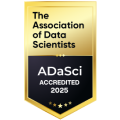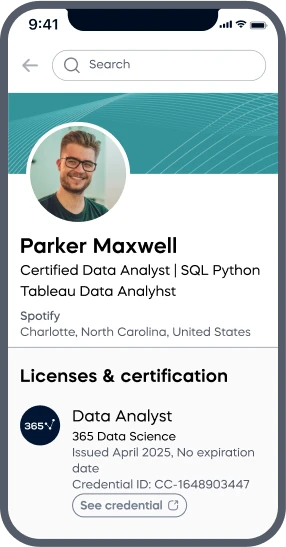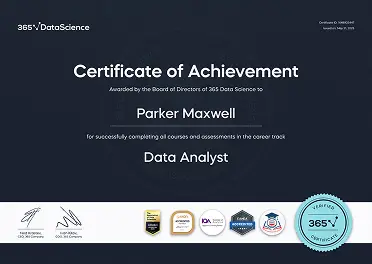Veronika K.
See all reviews
Gaining insights from data is crucial for businesses. With emerging AI technologies, the importance of vectorization and vector databases is set to increase significantly. In this Vector Databases with Pinecone course, you’ll have the opportunity to explore the Pinecone database—a leading vector solution—and learn to implement a vector database for semantic search using real data.






Skill level:
Duration:
CPE credits:
Accredited

Bringing real-world expertise from leading global companies
Master's degree, Bioinformatics
Description
Curriculum
Free lessons

1.1 Introduction to the course
3 min

1.2 Database comparison: SQL, NoSQL, and Vector
5 min

1.3 Understanding vector databases
4 min

2.1 Introduction to vector space
5 min

2.2 Distance metrics in vector space
6 min

2.3 Vector embeddings walkthrough
4 min
9 in 10
of our graduates landed a new AI & data job
#1 most reviewed
94%
of AI and data science graduates
successfully change
ACCREDITED certificates
Craft a resume and LinkedIn profile you’re proud of—featuring certificates recognized by leading global
institutions.
Earn CPE-accredited credentials that showcase your dedication, growth, and essential skills—the qualities
employers value most.





Certificates are included with the Self-study learning plan.


How it WORKS